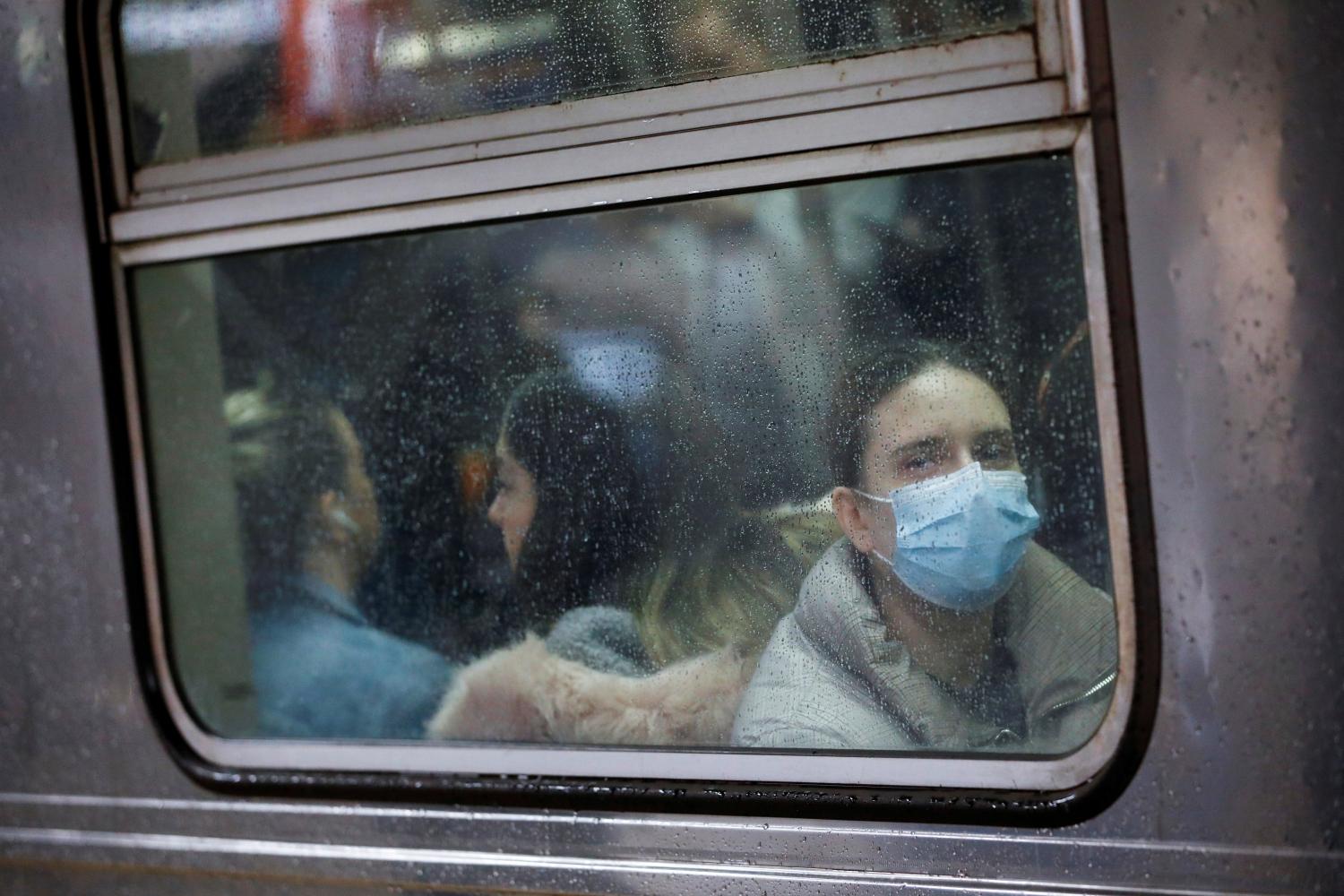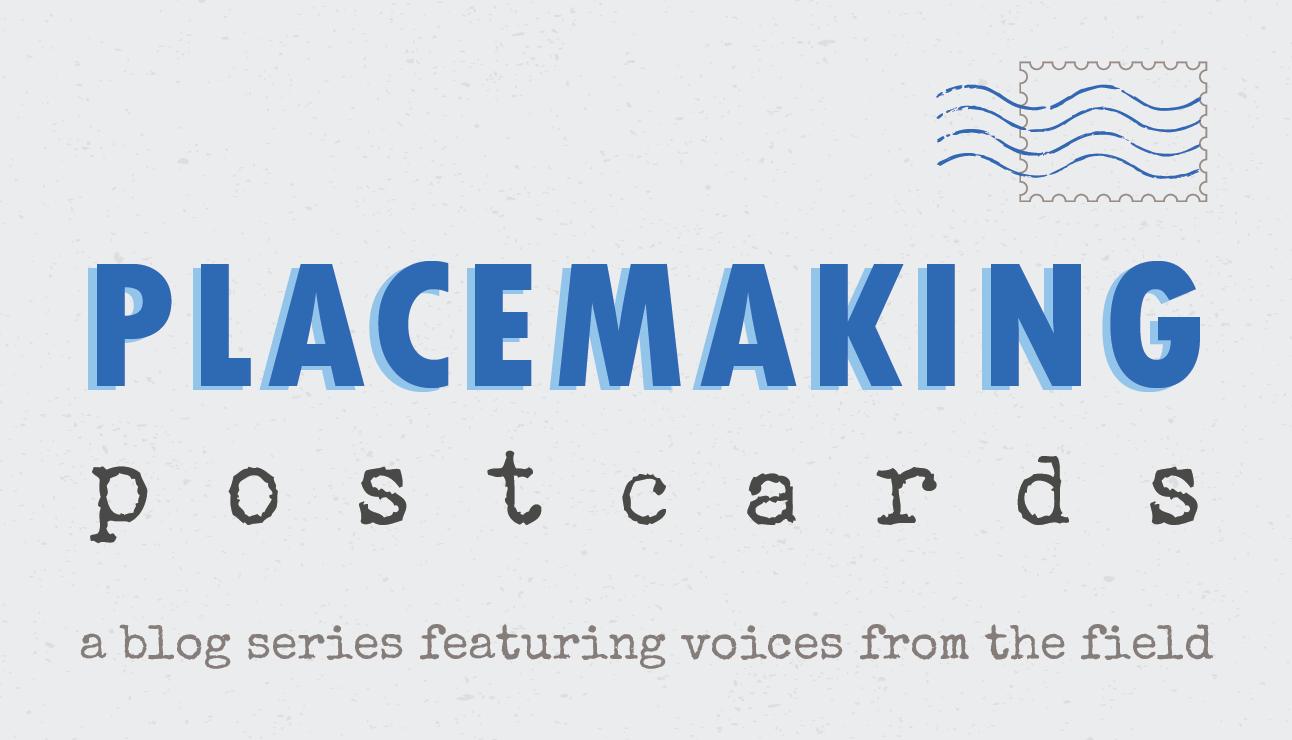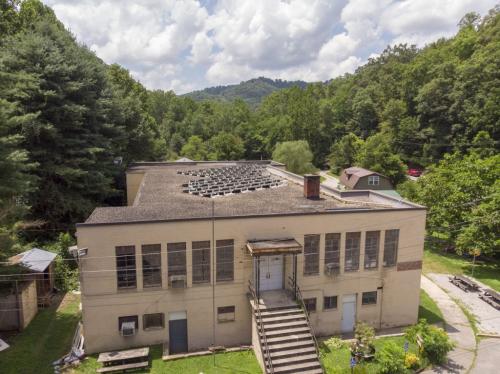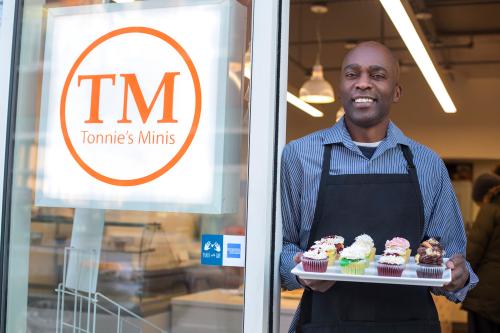Placemaking Postcards is a blog series from the Bass Center for Transformative Placemaking at Brookings where policymakers and practitioners guest-author promising placemaking efforts from across the U.S. and abroad that foster connected, vibrant, and inclusive communities. In line with the principle tenets of placemaking, the goal of the series is to recognize the community as the expert, highlight voices from the field, and to create a community of learning and practice around transformative placemaking.
As COVID-19 leaves no place immune – threatening to destabilize urban communities, as well as rural and suburban areas with limited resources and infrastructure to weather the outbreak— the connectivity of people and places matters more than ever. Local responses to the pandemic are revealing that even amid unprecedented distancing, the economic, physical, social, and civic structures of connected communities are laying the groundwork for resilience and recovery.
In this moment of uncertainty, communities are increasingly seeking solutions from the community-based organizations, networks, and coalitions they know and trust in ordinary times. We at the Bass Center for Transformative Placemaking decided to look to there too, revisiting past entries from our Placemaking Postcards series to uncover how these organizations are responding to the COVID-19 crisis.
Every placemaking practitioner we spoke to—from those managing public spaces in large cities to those supporting small businesses in rural communities—had swiftly adapted their work to meet residents’ immediate needs, while staying aligned with their mission of place-based inclusion and long-term well-being.
Supporting local economies
Across the country, hyperlocal governance organizations are being called upon to play an expanded role in supporting small businesses. This rang true for each organization we spoke with, as place governance entities in urban and rural areas alike modified their work to include compiling COVID-19 resources for small businesses, redirecting existing funding streams, creating new resources for relief, and offering promotions for customers to purchase local goods and services. Some are even stepping in to manufacture health materials for first responders.
For instance, Philadelphia’s University City District—which we highlighted last year for their efforts to measure inclusion in public spaces—is partnering with the University of Pennsylvania to launch a relief fund for local, independently owned retailers and restaurants. Simultaneously, they are working to bring revenue to local businesses through a matching gift cards program, and are sponsoring local restaurants to prepare meals for families with ill children at the Ronald McDonald House.
Rural place-based organizations are engaging in similar efforts. Appalshop, a Kentucky nonprofit we covered last month for their solar energy project, has raised more than $10,000 for local businesses, nonprofits, and first responders. The community development organization Downtown Wytheville in Virginia (whose rural entrepreneurship competition we wrote about this summer), is helping businesses apply for SBA disaster relief funding and running a “Support Local Safely” campaign to publicize open businesses. In Wyoming, Rawlins DDA/Main Street (whose entrepreneurship center we wrote about last fall), is engaging the public about business needs and offering similar promotions. While seemingly small in scale, all of these efforts are critical supports needed to keep businesses open and will lay the groundwork for recovery in the months to come.
Other place-based organizations are adapting their business models to respond to the crisis. In ordinary times, makerspaces and other innovation spaces provide places to collaborate, support entrepreneurship, and challenge economic and social divides. In the midst of COVID-19, makerspaces are abandoning those routines to support frontline responders. Open Works—a Baltimore makerspace we covered for their efforts to build trust between residents, businesses, and institutions—has partnered with Innovation Works and We the Builders to launch a collaborative emergency response effort to manufacture face shields for health care workers.
Advancing community health and well-being
In addition to supporting economic recovery, locally serving organizations are also providing residents with access to critical infrastructure and resources to remain fed, active, and digitally connected during the pandemic.
As people increasingly rely on internet access to remain in school, employed, and in touch with loved ones, Chattanooga, Tenn. nonprofit the Enterprise Center (which we highlighted for their innovation district’s digital inclusion programming) is working to expand Wi-Fi and technology access for residents. They partnered with the University of Tennessee at Chattanooga to build an interactive, mobile-accessible public Wi-Fi map and resource site. The nonprofit also coordinated with the city’s public utility company, EBP, to create 27 “drive-up” Wi-Fi sites in areas that need more consistent internet access (e.g., schools, housing authority sites, community centers). Lastly, the Enterprise Center is working with the city to keep internet functioning even at closed locations such as libraries and is helping Chattanooga State Community College students, families at domestic violence shelters, clinics, homeless services, and other nonprofits access low-cost internet options.
Access to another basic necessity—fresh food—has become a priority in this time of heightened food insecurity. Local organizations we reached out to were at the forefront of this regardless of their organizational mission. Building Bridges Across the River—a Washington, D.C. nonprofit whose equitable development plan we highlighted last year—is pivoting in the short term to meet their community’s immediate food needs. Partnering with local social service organizations DC Central Kitchen and Martha’s Table, they converted their recreation center, THEARC, to serve as a food distribution site with free daily lunches for children and free groceries once a week.
Other place-based organizations are expanding the food access services they already provided. BakerRipley, a Houston nonprofit whose Appreciative Community Building process we wrote about last fall, is hosting drive-through food distribution fairs, delivering food to elderly clients, and conducting at-home wellness checks for elderly clients who live alone or have limited social engagement. And in San Francisco’s Civic Center Plaza (whose inclusive place-management strategies we covered in February), the Heart of the City Farmers’ Market is remaining open, in recognition of its vital role in a low-income food desert.
Finally, while public spaces are somewhat controversial at the moment, they are the only way for many in urban areas (particularly low-income urban areas) to access fresh air and green space. The Memphis River Parks Partnership (whose equity model we covered last summer) is fulfilling this service by keeping the Memphis, Tenn. riverfront open as an essential businesses. This requires transitioning their staff (including those who usually work in the office) to work onsite keeping the parks welcoming, clean, calm, and safe (including intervening when people are not following social distancing guidelines). As Carol Coletta, president and CEO of the Partnership put it, “The evolving nature of the crisis is requiring us to adapt our practices daily, sometimes even hourly, to make safe space for those who need it.”
The critical role of place governance
All of these actions reinforce the importance of place governance, now and in the long term. The civic organizations that advance transformative placemaking during ordinary times are now stepping in as first responders, strengthening existing collaborations and forging new relationships to see their communities through the pandemic. These structures will serve as the backbones of recovery once the immediate crisis has subsided, and as we look toward long-term community health and well-being, we must invest in the transformative placemaking strategies supporting us now.
The Brookings Institution is committed to quality, independence, and impact.
We are supported by a diverse array of funders. In line with our values and policies, each Brookings publication represents the sole views of its author(s).










Commentary
Transformative placemaking amid COVID-19: Early stories from the field
April 7, 2020